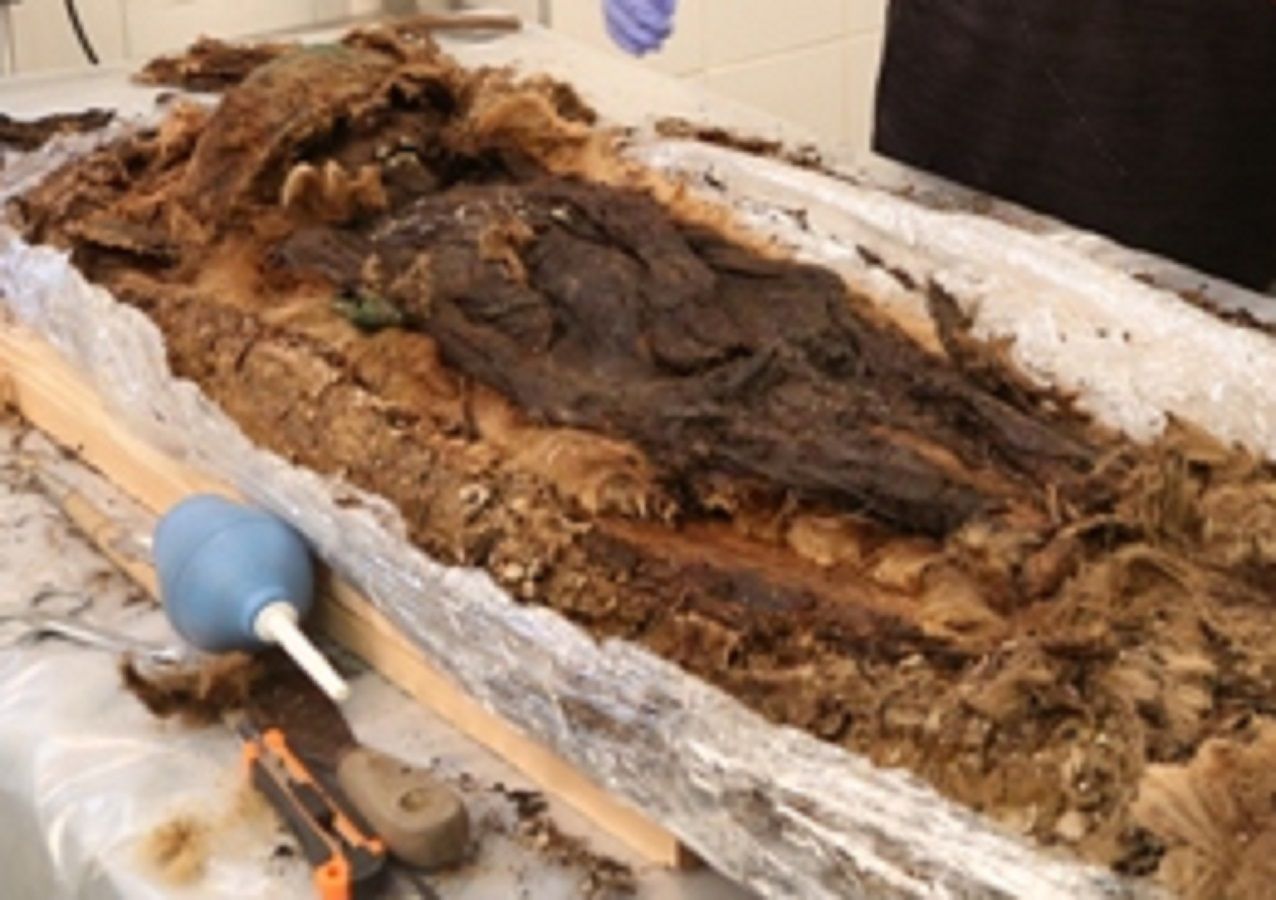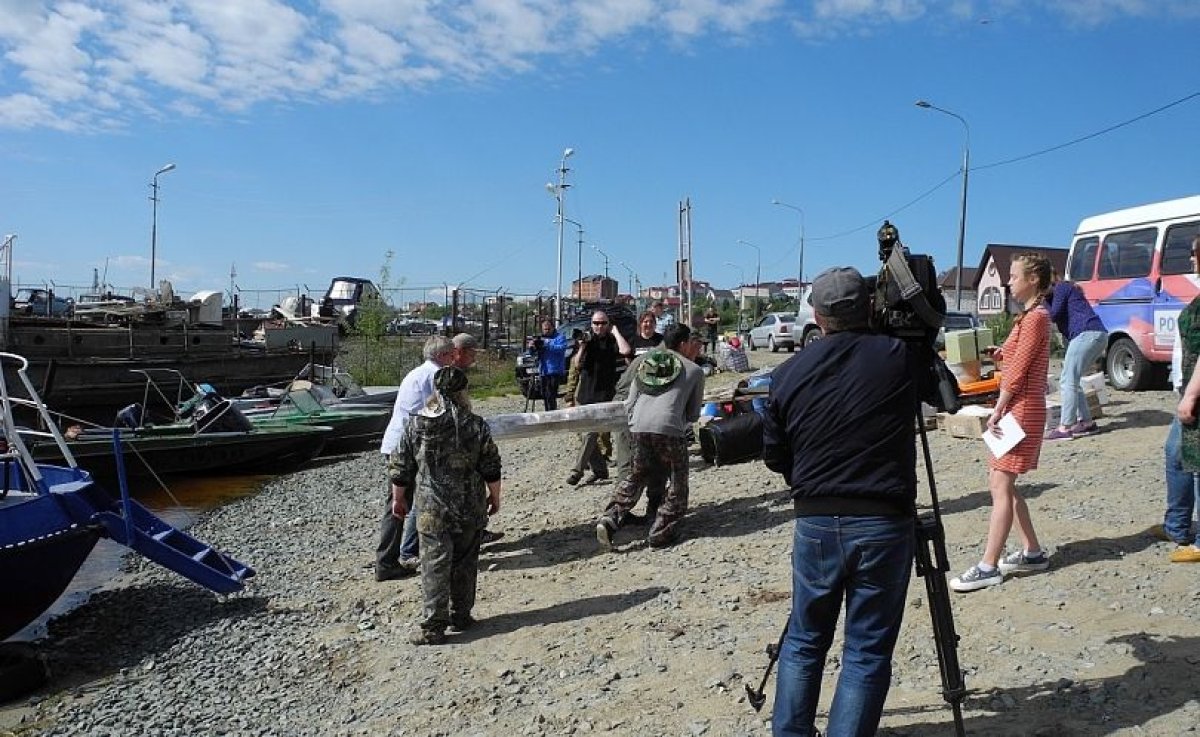
Two medieval mummies from an Arctic civilization have been discovered at the edge of Siberia. The remains of an adult and a baby were found in the Zelenyy Yar necropolis, an archaeological complex discovered in 1997. They were covered in copper, the adult having been plated from head to toe.
Excavations at Zelenyy Yar ended last week, but over the course of this year's expedition to the Arctic site, scientists found 10 graves. Five had not been looted for their "grave goods," valuable objects placed with bodies in ancient burials.
As a result, the team will be better able to understand the little-known civilization that lived in this region between the eighth and 13th centuries A.D. Alexander Gusev, expedition leader, said the remains were found near one of the three monuments at Zelenyy Yar. They were buried in a north-south direction, their feet facing a river.

Both mummies were covered in birch bark and canvas. The adult's body had been encased in copper plates, while the baby's was covered in fragments of a copper kettle.
"When we saw that the adult's burial cocoon was in good condition, we couldn't risk opening it on the spot. To avoid spoiling the fabrics, we extracted it inside its soil shell," said Yevgenia Svyatova, an anthropologist working at the site.
In a press release put out by the official website of the Yamal-Nenets autonomous region, scientists said comprehensive analysis of the two mummies will take place at the Institute of the Development of the North, a branch of the Russian Academy of Sciences.
The team will use computer tomography to look at the remains within their burial cocoons, including any artifacts within them. They will also study the DNA of the mummies and carry out histological (microscopic anatomy) and parasitological analysis.
Results from the latest field studies will be presented in November at a conference in Salekhard covering archaeology in the Arctic.
Since its discovery 20 years ago, almost 100 burials have been found at Zelenyy Yar. The three monuments include a bronze-casting workshop which dates to the sixth and seventh centuries; a burial ground from the eighth and ninth centuries; and a necropolis from the 13th century.
Most remains were found in the latter burial ground and are characterized by wooden sarcophagi, birch-bark wrapping and the dead being dressed in fur clothing. Many of the adults, like the newly discovered mummy, were found encased in copper. Another child was found with her face masked in copper plates. Between graves, archaeologists found bronze boilers and bronze and silver ornaments.
Researchers have yet to see the results from the latest mummies; none of the ones previously discovered at the site were female. All the bodies were buried with their feet pointing toward the river, the significance of which is thought to be religious.
Who these people were and how they ended up on the edge of the Arctic is not known, but previous DNA analysis has shown they had links to Persia. Researchers are currently working to connect the civilization to the local indigenous population living in the region today.
Uncommon Knowledge
Newsweek is committed to challenging conventional wisdom and finding connections in the search for common ground.
Newsweek is committed to challenging conventional wisdom and finding connections in the search for common ground.
About the writer
Hannah Osborne is Nesweek's Science Editor, based in London, UK. Hannah joined Newsweek in 2017 from IBTimes UK. She is ... Read more
To read how Newsweek uses AI as a newsroom tool, Click here.








